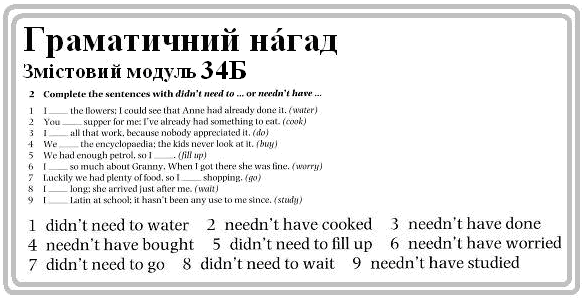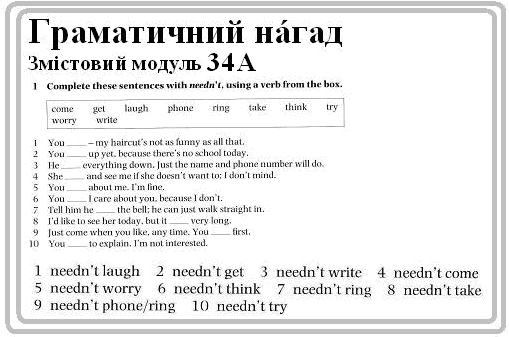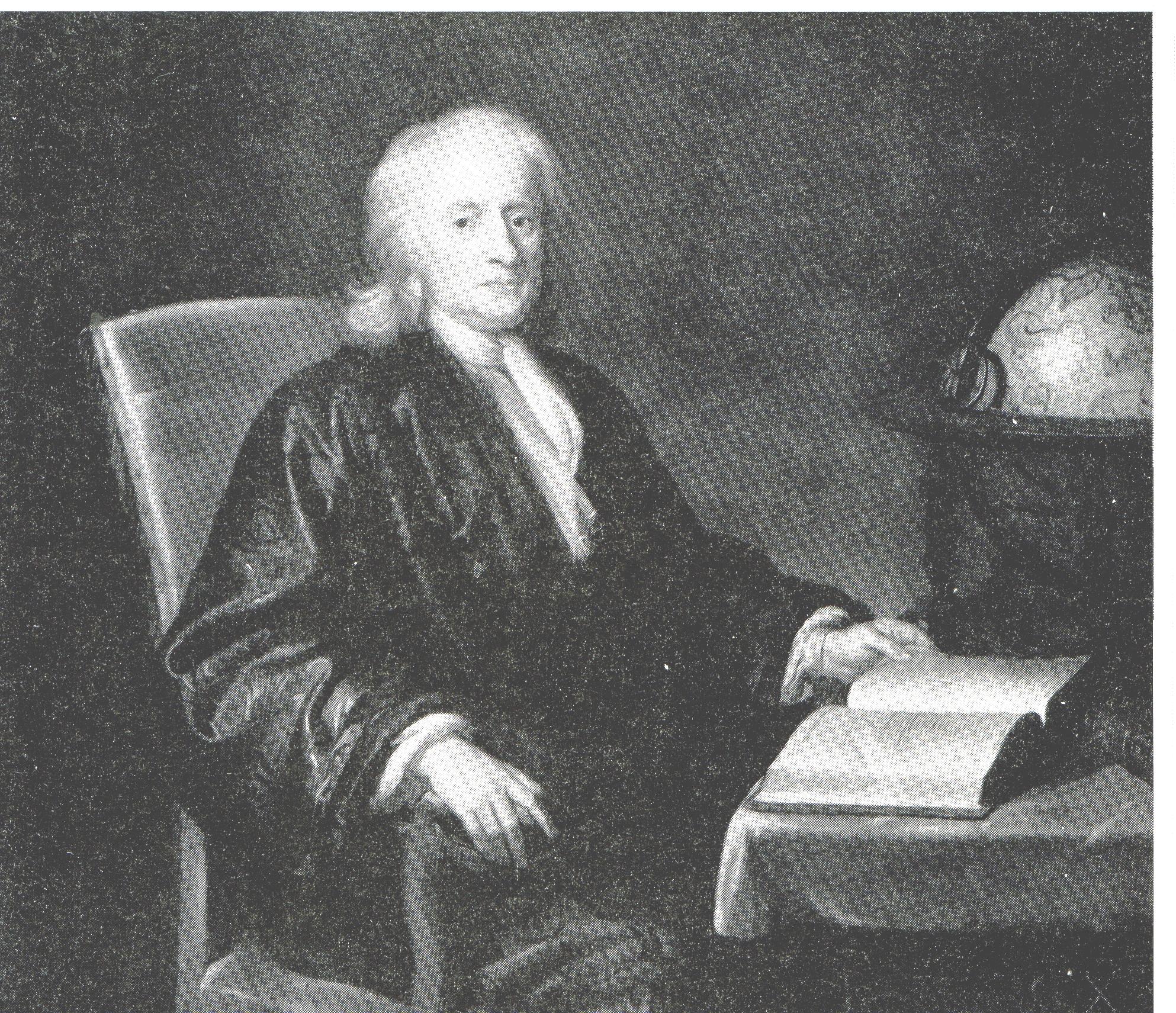
- •Передмова
- •Шановний студенте! Це заняття тобі допоможе:
- •Шановний студенте! Це заняття тобі допоможе:
- •Шановний студенте! Це заняття тобі допоможе:
- •Шановний студенте! Це заняття тобі допоможе:
- •Шановний студенте! Це заняття тобі допоможе:
- •Шановний студенте! Це заняття тобі допоможе:
- •Шановний студенте! Це заняття тобі допоможе:
- •Шановний студенте! Це заняття тобі допоможе:
- •Шановний студенте! Це заняття тобі допоможе:
- •Шановний студенте! Це заняття тобі допоможе:
- •Шановний студенте! Це заняття тобі допоможе:
- •Шановний студенте! Це заняття тобі допоможе:
- •Шановний студенте! Це заняття тобі допоможе:
- •Шановний студенте! Це заняття тобі допоможе:
- •Шановний студенте! Це заняття тобі допоможе:
- •Список використаної літератури Основна література
- •Додаткова література
- •6.030505 «Управління персоналом та економіка праці».
Шановний студенте! Це заняття тобі допоможе:
зрозуміти, чому важливо вміти висловлюватися англійською мовою на тему «Балансовий звіт», як це допоможе твоїй країні і може змінити обставини у твоєму житті.
самостійно працювати за текстом на тему «Балансовий звіт».
відпрацьовувати вимову наближену до якісних характеристик мовлення освіченої англомовної людини за текстом на тему «Балансовий звіт».
навчатися мові і бути задоволеним від процесу і результату.
шукати повний смисл слів у тексті на тему «Балансовий звіт».
як пов’язати власні думки із знанням модального дієслова should .
як цінувати мовлення викладача, який стає взірцем іншомовного спілкування.
наближатися до провідної риси в навчанні в англомовній реальності, яка полягає нетерпимості до нечесної поведінки в освіті, як-то: списувань, підказок тощо.
подолати ніяковість і навчитися не боятися говорити іноземною мовою на тему «Балансовий звіт» перед людьми.
збирати зернята знань про англійську культуру у тексті на тему «Балансовий звіт».
практикуватися за текстом на тему «Балансовий звіт» на манер його первинного опрацювання.
навчатися за текстом на тему «Балансовий звіт» на манер його поглибленого засвоєння.
проникнутися думкою, що необхідно обов’язково навчитися писати текст «Балансовий звіт»; готуватися до словникового диктанту, текстового диктанту та починати вільно висловлюватися на тему «Балансовий звіт» у своїх 5-7 реченнях.
зрозуміти, чому важливо читати текст на тему «Балансовий звіт» вголос, тим більш разом із викладачем.
пам’ятати, що небезпечно заучувати текст на тему «Балансовий звіт», якщо ти невірно промовляєш слова .
розпізнавати граматичні форми модального дієслова should в тексті і шукати повний смисл таких граматичних виразів.


Домашнє завдання 33
Відпрацюй якісне читання тексту із урахуванням вимог до публічного мовлення, та практикуй написання нових слів, складаючи їх список у зошитах із транскрипцією, перекладай текст красивою рідною мовою. Приготуй питання до викладача про те, що не зрозумів, або що виявилося дуже важким. Виконуй вправи на cтор. 305-307 основного підручника.
Домашнє завдання 34
На вибір викладача виконай вправи із підручника Elementary Economics and Business на cтор. 305-307. Самостійно монологічно висловлюйся за темою, що опрацьовується, із урахуванням вимог публічного мовлення і офіційної поведінки.
35-36. Cеместр 2
Організаційний модуль 4
Змістовий модуль 35-36
Загальне обговорення тем семестру. Публічні виступи студентів. Підсумки за 2-й семестр із лексико-граматичного матеріалу в чотирьох видах мовленнєвої діяльності. Письмова контрольна робота
Шановний студенте! Це заняття тобі допоможе:
отримати досвід публічного виступу про особистості, життя яких вважається багатством англомовної національної культури.
навчитися врахувати одночасно вимоги письмового мовлення і усного публічної презентації.
зрозуміти, чому важливо вміти висловлюватися англійською мовою на теми семестру із використанням пройденого граматичного матеріалу, і як це допоможе твоїй країні і може змінити обставини у твоєму житті.
усвідомити чи ефективно ви самостійно працювали за текстами з тем семестру .
подумати, які труднощі зустріли, коли відпрацьовували вимову заради якісних характеристик мовлення освіченої англомовної людини за текстами на теми семестру? Які труднощі ще належить подолати?
узагальнити, чи зрозуміли ви, як навчатися мови і бути задоволеним від процесу і результату?
відчути, як пов’язуються власні думки із знанням англійської граматики, які відпрацьовувалися протягом семестру.
підвести підсумок, чи залишилися у вас проблеми із подоланням ніяковості говорити перед людьми іноземною мовою на теми семестру із використанням пройденого граматичного матеріалу.
осмислити, наскільки ви збагатилися знаннями про англійську культуру на теми семестру.
спостерігати, чи стали ви грамотніше писати на теми семестру із використанням граматичного матеріалу відповідного періоду навчання.
пересвідчитися, чи легко ви розпізнаєте граматичні форми, відпрацьовані в семестрі і чи розумієте їх смисл в текстах на теми семестру ?
Взірець для ваших зусиль повідомити про певні англомовні особистості, життя яких пов’язано із фінансовою діяльністю їх країн можна знайти в кінці цієї збірки. Таким прикладом можна вважати оповідь про математика І.Ньютона, який ввійшов в історію британської фінансової діяльності в ролі керівника монетного двору протягом двадцяти років і до останньої миті життя.
Домашнє завдання на канікули влітку:
Знайди англомовні книжки за своїм вибором і приходь порадитися із викладачем про способи самостійного читання та письма. Купи в магазині іноземної навчальної літератури саму просту книжечку із аудіо записами і технічно приготуйся до регулярного самостійного прослуховування. Як тільки такі матеріали отримані, тоді слід порадитися із викладачем про способи своєї самостійної роботи із урахуванням своїх індивідуальних особливостей і стилю навчання.
Додаток
(приклад розповіді про визначну людину із англомовного світу, життя і робота якої пов’язана із фінансовою діяльністю)
ISAAC NEWTON AS A REAL-LIFE PERSON AND BRITISH FINANCIAL AUTHORITY
Preface
It is very much important that whatever we read should open the other person’s experience. Every move in business as well as in the science has been the sequence of devotion, strain, battle, and endurance; getting acquainted with the personalities, we develop commitment to their deeds.
 ISAAC
NEWTON
ISAAC
NEWTON
(1)
Isaac Newton may be said to have set the universe in order for
the age of science. For centuries to come, his theory of universal
gravitation sufficiently described the laws of motion of the earth,
the moon, the sun, and all of the other heavenly bodies. In
mathematics he was one of co-developers![]() of
of
the
calculus3
![]() and also made other fundamental contributions to that science. He
also founded the science of physical optics and invented the
reflecting telescope.
and also made other fundamental contributions to that science. He
also founded the science of physical optics and invented the
reflecting telescope.
(2)
The esteem in which Newton has been held can be gathered from a
famous couplet
![]() by the 18th
century English poet Alexander Pope: “Nature and nature’s laws
lay hid in night. God said, ‘Let Newton be!’ and all was light”
by the 18th
century English poet Alexander Pope: “Nature and nature’s laws
lay hid in night. God said, ‘Let Newton be!’ and all was light”
(3) Newton himself had no false modesty, but he said if that he had achieved anything, it was only because he stood on the shoulders of giants. And there was much truth in that. What Newton did was to gather together in his mind the work of great scientists and create a clear, logical, all-embracing system. He is justly honored as one of the greatest scientists in history.
EARLY LIFE
(4)
Isaac Newton was born in Woolsthorpe![]() , England, on December 25, 1642. His early childhood was not happy.
His father died before he was born. Premature, Newton remained small
and weak until he reached school age. Before he was two, his mother
remarried and turned him over to his grandmother to raise on a farm.
He attended school in Skillington and Stoke
, England, on December 25, 1642. His early childhood was not happy.
His father died before he was born. Premature, Newton remained small
and weak until he reached school age. Before he was two, his mother
remarried and turned him over to his grandmother to raise on a farm.
He attended school in Skillington and Stoke![]() during those years.
during those years.
(5)
His mother reclaimed Newton when he was 14, with the intent of
making him a farmer – something in which he had no interest at all.
Instead he spent his time in solitary thinking and reading. He also
enjoyed handiwork and making gadgets and models. His mother relented,
and at 18, Newton entered Cambridge University’s Trinity College.
He did well there, but was mainly involved in his own projects:
observing comet paths, studying the refraction of light, and
developing the general binomial![]() theorem4
– of major importance in mathematics.
theorem4
– of major importance in mathematics.
A GREAT CREATIVE PERIOD
(6)
For about 18 months the university was shut down because of an
out break of bubonic plague5![]() .Newton
spent that time at is farm in Woolsthorpe. It was a period of amazing
creativity. As Newton later wrote, “In those days I was in the
prime of my age for invention, and minded mathematics and physics
more than at any time since.”
.Newton
spent that time at is farm in Woolsthorpe. It was a period of amazing
creativity. As Newton later wrote, “In those days I was in the
prime of my age for invention, and minded mathematics and physics
more than at any time since.”
(7)
In those few months Newton developed both the differential and
integral calculus, independently of the German mathematician
Leibniz![]() .
The calculus was absolutely essential
.
The calculus was absolutely essential![]() to the development of modern physics. It is the branch of mathematics
that deals with the study of continuously changing qualities. Without
the calculus, Newton could not have worked out his theory of
gravitation, since it involves
to the development of modern physics. It is the branch of mathematics
that deals with the study of continuously changing qualities. Without
the calculus, Newton could not have worked out his theory of
gravitation, since it involves![]() the mathematics of bodies in motion – that is, bodies continuously
changing their position in space.
the mathematics of bodies in motion – that is, bodies continuously
changing their position in space.
(8)
In this period, Newton also showed that colors of the spectrum6
![]() can be obtained
can be obtained
![]() by diffracting white light with a prism
by diffracting white light with a prism
![]() ,
and then be recombined with another prism to produce white light
again. He speculated on the nature of light, and ended up with an
outlook that in some ways resembles the modern one – that light
behaves both as if it travels as particles and in waves. In the
course of this work on light, he designed the first reflecting
telescope.
,
and then be recombined with another prism to produce white light
again. He speculated on the nature of light, and ended up with an
outlook that in some ways resembles the modern one – that light
behaves both as if it travels as particles and in waves. In the
course of this work on light, he designed the first reflecting
telescope.
(9) Finally, Newton began to work out his gravitational theory, coming to the conclusion that gravitational forces work at a distance between bodies in space. The story that his musings on gravitation were set off by the sight of an apple falling comes from Newton himself.
(10)
Newton was 24 when he returned to the university. A professor
of mathematics, Isaac Barrow
![]() ,
had early recognized Newton’s genius. It is generally thought that
Barrow resigned his professorship so that Newton could take his place
as Lucasian
,
had early recognized Newton’s genius. It is generally thought that
Barrow resigned his professorship so that Newton could take his place
as Lucasian![]() professor of mathematics, at the age of 26. He remained at the
university until he was 53 years old. His work in mathematics and
optics had already made him a famous man, and he was elected a member
of the Royal Society at the age of 30.
professor of mathematics, at the age of 26. He remained at the
university until he was 53 years old. His work in mathematics and
optics had already made him a famous man, and he was elected a member
of the Royal Society at the age of 30.
THE PRINCIPIA7
(11)
In 1684, while Newton was at the university, he was visited by
the English astronomer, Edmund Halley![]() ,
who wished to consult with him on the forces that control planetary
orbits. Specifically, he wanted to know what sort of orbit a planet
would follow under the influence of a force that varies inversely
with the square of the distance between the planet and the sun. A
number of scientists had been working on the problem, but none of
them had been able to come up with an answer.
,
who wished to consult with him on the forces that control planetary
orbits. Specifically, he wanted to know what sort of orbit a planet
would follow under the influence of a force that varies inversely
with the square of the distance between the planet and the sun. A
number of scientists had been working on the problem, but none of
them had been able to come up with an answer.
(12) Newton immediately replied that the planet would follow an elliptical orbit. When asked how he new this, he said that he had worked it out, but he could not find the calculation among his papers. Halley urged him to write it down again. A first paper “On the Motions of Bodies” /translated in English from Latin /, was soon presented to the Royal Society. It represented a portion of what was to become Newton’s most famous work, “Mathematical Principles of Natural Philosophy”, better known simply as “Principia”.
(13)
The book was written in a surprisingly short time and was
published on July 5,168. Halley must be given great credit for his
efforts in getting the book out. Although not wealthy, he paid for
its publication. He also steered![]() the touchy Newton through scientific squabbles
the touchy Newton through scientific squabbles
![]() with contemporaries such as the still more touchy Robert Hooke
with contemporaries such as the still more touchy Robert Hooke![]() ,
who claimed equal credit for Newton’s insights into gravitation but
lacked the mathematical ability to work them out.
,
who claimed equal credit for Newton’s insights into gravitation but
lacked the mathematical ability to work them out.
(14) The Principia is one of the greatest scientific books ever written. It is divided into three major sections. The first sets out the three laws of motion and various laws of force. The second takes up motions in different kinds of fluids. The third and most important section presents Newton’s theory of universal gravitation. It shows how this force accounts for all motions, whether of bodies on the earth – including the water motions we call tides – or of bodies in space. Simply put, he had accounted for the laws of motion that control the universe.
NEWTON THE MAN
(15)
For the rest of his life, Newton continued to receive awards
and honors for his achievements in science. He produced some further
work and improved and added to his Principia, but nothing
equaled
his earlier achievements. He retained his mathematical powers,
however, and quickly solved difficult problems that were presented to
him. In 1696 he was appointed Warden of the Mint8,
and he became Master of the Mint three years later. He retained his
post until his death, in Kensington![]() ,
on March 20, 1727, at the age of 84.
,
on March 20, 1727, at the age of 84.
(16)
Newton was a solitary and often a difficult man. During his
long stay at Cambridge he worked alone or with one assistant. He did
not do much teaching, and he had only a very few friends. He slept
little and ate little and was nearly always working. He spent his
days reading, writing, making notes, pacing back and forth in his
room, going for walks, avoiding naps – and always, always
concentrating on his projects. His relaxation came in switching back
and forth between theoretical physics, mathematics, and – there was
a mystical side to Newton – alchemy
![]() and
theology
and
theology
![]() .
His contemporaries said that he seldom laughed or ever smiled.
.
His contemporaries said that he seldom laughed or ever smiled.
(17)
Newton’s health as an adult was excellent and he was clever
with his hands. However, he had at least two nervous breakdowns, and
he lost his temper easily. He engaged in several long scientific
battles with fellow scientists over his theories, including Hooke,
Leibniz and the English astronomer John Flamsteed![]() .
In such battles Newton could be without mercy. The philosopher John
Locke, a friend, wrote that “Newton was a difficult man to deal
with and a little too apt to raise in himself suspicions where there
was no ground.” It should be said, however, that justice was often
on Newton’s side and that he could deal quite patiently with other
scientists in trying to explain his theories.
.
In such battles Newton could be without mercy. The philosopher John
Locke, a friend, wrote that “Newton was a difficult man to deal
with and a little too apt to raise in himself suspicions where there
was no ground.” It should be said, however, that justice was often
on Newton’s side and that he could deal quite patiently with other
scientists in trying to explain his theories.
(18) All of those conflicts are long since over. The achievements of Isaac Newton remain. Among the galaxy of scientists, his star shines very bright.
